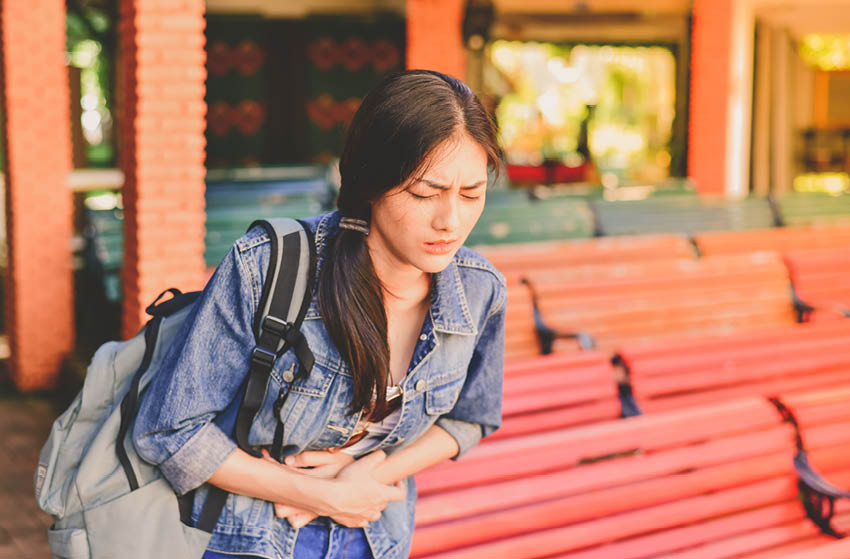Why travellers prefer Blue Cross
- Canada's #1 travel insurance brand and recognized worldwide
- Over 75 years of expertise in insurance
- $5 million travel insurance coverage, with or without deductible
- Flexible and affordable travel insurance solutions
- Free quote available online
- Travel assistance available 24/7 for any emergency, anywhere you travel

Bali Belly FAQ
Published on: December 21, 2018
When I consult on travel health issues, the people who come to me often have questions about travellers’ diarrhea and that is regardless of what sort of trip they’re planning. So, I’ve come up with some FAQ (frequently asked questions) to help you be more aware about “Bali Belly” prevention during your trip or on your return.
Bali Belly FAQ
I saw an ad on TV about an oral vaccine for travellers’ diarrhea. Should I get it?
Dukoral is an oral vaccine that provides travellers with about 50% effective protection against diarrhea caused by enterotoxigenic E. coli bacteria (ETEC) that produce toxins in your gut. While the bacteria are quite common, they are not the only source of travellers’ diarrhea and the vaccine offers no protection against the others.
Given the vaccine’s limited efficacy, the Committee to Advise on Tropical Medicine and Travel (CATMAT) of Canada does not recommend universal use of the vaccine for all travellers. However, it might be prescribed to you during a pre-travel consultation if you are in poor health or if your trip won’t allow for you to be indisposed for any length of time. If you don’t fit those categories and you are determined to get the vaccine before your trip, you are free to do so making sure that you mention it to your health care provider.
If you take Dukoral before your trip, remember that it is no substitute for the other precautions you ought to take to avoid contamination likely to produce travellers’ diarrhea.
Dukoral is no replacement for basic precautions. Keep vigilant.
I’ll be travelling to a 5-star hotel. Can I still contract travellers’ diarrhea?
The sad truth is yes, you’re still at risk! While luxury hotels usually meet the highest hygiene standards, the risk of encountering microorganisms that cause travellers’ diarrhea is real and contamination remains a likelihood.
Are probiotics effective in preventing travellers’ diarrhea?
The truth is that we don’t really know how effective probiotics are when it comes to preventing travellers’ diarrhea. Studies have shown that probiotics may be helpful in maintaining gut health, but there is no conclusive research showing that they can prevent contracting travellers’ diarrhea.
As a health care professional, I have to ensure that my recommendations are evidence-based. Since the data are insufficient at this stage, I’m unable to advise taking probiotics to prevent travellers’ diarrhea. When patients ask me about it, I explain what we know and don’t know and that they are free to choose whether or not to use them.
So, while we don’t know much about their efficacy, taking probiotics is not risky and you may very well choose to use them for travellers’ diarrhea when you’re back from your trip or prior to your departure. While probiotics are readily available over-the-counter, people who are immunosuppressed should always consult with their doctor before buying them and should also advise Blue Cross of their current health status.
What should I do if I come down with diarrhea? Should I take antibiotics as soon as I feel some symptoms?
Antibiotics are never used to prevent travellers’ diarrhea. They are used only to treat severe cases of diarrhea.
Never take antibiotics “just in case”. They are used solely to treat, not to prevent.
Usually, diarrhea will disappear on its own. You should always use antibiotics in strict compliance with the orders of the doctor who prescribed them. Here are some risks associated with unnecessary antibiotic treatment:
- Development of resistance to the antibiotic
- Complications such as contracting C. difficile
- Loss of an effective treatment should you actually require an antibiotic
I hope this information helps you enjoy healthy travels!
Gabrielle Asselin
Source
